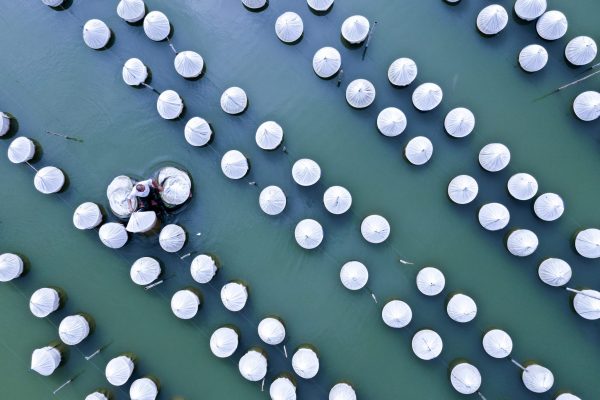China was also found to have breached provisions in the Convention relating to the protection of marine environment.
The findings are important for countries’ rights and obligations with respect to fisheries management and conservation under the Convention on the Law of the Sea. Yet just as important for fisheries in the region and beyond are the economic incentives underpinning the fishing industry, particularly their effects on trade and the environment. These are addressed elsewhere in international law, including at the WTO.
At a global level, states are heavily implicated in providing direct and indirect financial support to a sector that has led to too many boats fishing for too few fish. As much as 54 per cent of the high seas fishing industry would be unprofitable at its existing scale without big government subsidies.
In 2009, fisheries subsidies were estimated at about US$35 billion. The majority of these subsidies enhance the capacity of fishing vessels and are used to pay for fuel, other operating costs and even for ship construction. In effect, tax payers are propping up the fishing sector in a way that leads to trade distortion and ecological harm.
To address this, lawyers focus on trade rules rather than the Convention on the Law of the Sea. Because states have agreed not to distort markets through certain subsidies at the WTO, it is possible that legal challenges could be brought against the major subsiding states. But to date there has been no case to challenge fisheries subsidies or other environmentally harmful subsidies like those on fossil fuels. (Why countries are willing to litigate against India’s solar cell rebate program or Canadian renewable energy measures but not any number of capacity-enhancing fisheries subsidies is a question worth asking.)
Instead of litigation, countries have sought to clarify rules on fisheries subsidies by negotiation. Within the WTO’s Doha Development Agenda, states have been negotiating to clarify and improve disciplines on subsidies for several years. Currently, they aim to adopt an agreement that will likely prohibit certain subsidies that lead to ‘illegal, unreported or unregulated fishing’ by 2019.
States have agreed that there needs to be appropriate special and differential treatment for developing and least-developed countries. The pressure is on the WTO to find agreement. The Sustainable Development Goals, endorsed by the UN General Assembly, set the target of 2020 for prohibiting certain forms of fisheries subsidies that contribute to overcapacity and overfishing.
Alongside these multilateral efforts, some states have sought agreement on fisheries subsidy rules within smaller regional forums, including the recently concluded Comprehensive and Progressive Agreement for Trans-Pacific Partnership or TPP-11. This new agreement, which is has not yet entered into force, contains a prohibition on subsidies for fishing that negatively affects overfished stocks or for vessels engaged in illegal fishing. With major fishing nations like Japan — whose subsidies are said to amount to 19.7 per cent of the world total — included in the TPP-11, this is a significant breakthrough. It will also continue to influence broader WTO reform, which includes China, itself a major subsidising state and the world’s leading fish exporter.
Once the TPP-11 enters into force, it will be open to any of its 11 member countries to enforce the prohibition on certain fisheries subsidies through the compulsory dispute settlement mechanism established by the agreement. This will be an important step towards adjudicating the trade and ecological consequences of fisheries subsidies and will help address a major problem in the region.
Margaret Young researches and lectures in international law at Melbourne Law School, the University of Melbourne.

